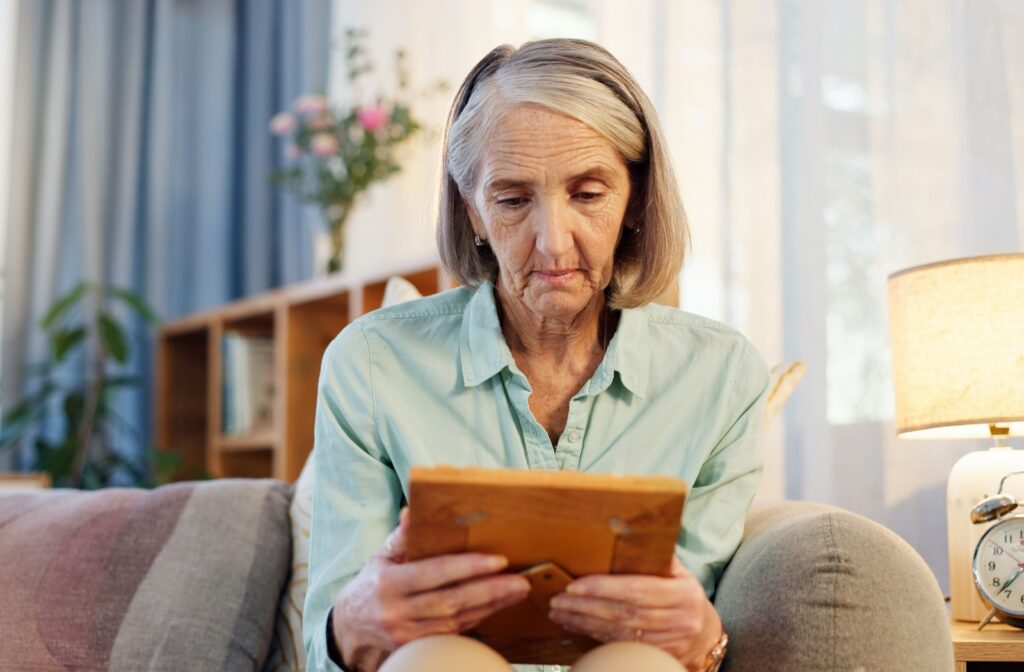Caring for a loved one is a profound expression of love and commitment. However, it’s crucial to recognize when our loved ones need more help than we can provide.
Assisted living might be the right choice for your aging loved one if you notice that they’ve begun to need help with their daily activities of living, if they’re increasingly isolated or overwhelmed with home maintenance, or if they have worsening health issues.
Assisted living can allow people to relieve stress, focus on their health and hobbies, and lead more enriching lives. If you do suspect that assisted living might benefit your loved one, don’t hesitate to book a tour of assisting living communities nearby—it’s best to see for yourself what they can offer!
Understanding Assisted Living
Assisted living is a residential option for seniors who need help with daily activities but don’t require intensive medical and nursing care. Assisted living is designed to allow residents to maintain their independence while still receiving the additional care they need.
The goal of this kind of care is to offer a nurturing community where seniors can thrive, surrounded by peers and caregivers who understand their needs.
In an assisted living community residents can expect access to various services tailored to their requirements in a safe and stimulating environment.
- Care services include assistance with personal needs, a 24-hour emergency call system, housekeeping, laundry, maintenance, an in-house pharmacy, and an in-house nurse practitioner.
- Community amenities include a beauty/barbershop, complete dining services, on-site worship services, a fitness center, and a range of floor plans.
- Events and activities include group activities like art classes, exercise sessions, trivia, and sports viewing, all of which encourage residents to participate communally and live life to the fullest.
Choosing assisted living isn’t about losing independence; it’s about gaining the support necessary to continue enjoying life. For many families, it represents peace of mind and knowing their loved ones have access to care, companionship, and safety.
What Does Assisted Living Provide?
Assisted living facilities offer specialized care and resources that can be difficult to replicate at home. These facilities have professional caregivers trained to promptly and effectively handle residents’ various needs.
One key aspect of assisted living is its structured environment, which provides routine and predictability for residents. This structure can help reduce stress and confusion, especially for those with memory loss or cognitive decline. Additionally, assisted living facilities offer emergency care and monitoring, ensuring that help is available around the clock.
Identifying the Need for Assisted Living
Recognizing the signs that a loved one may benefit from assisted living requires careful observation and compassionate dialogue. Let’s look at some of the signs that your loved one may need to consider assisting living.
Requiring Help with Daily Living Activities
Daily living activities such as bathing, dressing, grooming, and toileting are essential for maintaining one’s dignity and health. When a loved one begins to struggle with these tasks, it can lead to physical discomfort and emotional distress. Assisted living facilities provide trained staff who assist residents with whichever activities they can’t do themselves, ensuring their well-being and comfort.
Family members and caregivers at home can also help with these tasks, but the constant demand can often become overwhelming. Assisted living offers a consistent and professional standard of care, relieving families from the physical and emotional toll of providing round-the-clock assistance.
The Need for Socialization Opportunities
Social connections are vital for mental health and happiness. As seniors age, their social circles often shrink, leading to loneliness and depression. Isolation can exacerbate health issues, making it harder for seniors to maintain a positive outlook.
Regular social interaction helps combat these feelings, providing a sense of purpose and joy. Assisted living communities offer a vibrant social environment where residents can engage with peers, participate in group activities, and form new friendships.
Overwhelming Home Maintenance
Keeping up with home maintenance can become challenging as mobility decreases and health issues arise. Tasks that once seemed simple, like mowing the lawn or cleaning the house, can become burdensome and even hazardous for seniors.
Assisted living eliminates the stress of home maintenance, allowing residents to focus on activities they enjoy. Assisted living communities provide housekeeping, laundry, and meal preparation, freeing time and energy for more fulfilling pursuits.
Lack of Access to Proper Nutrition
Proper nutrition is essential for maintaining health and vitality, especially as we age. Preparing balanced meals can be difficult for seniors, particularly if they face physical limitations or cognitive challenges. Poor nutrition can lead to weight loss, weakened immune function, and increased vulnerability to illness.
In assisted living communities, residents receive nutritious meals prepared by skilled chefs who understand the dietary needs of seniors. Meals are balanced and delicious and served in a communal dining setting, which encourages social interaction during mealtimes.
Worsening Health Issues
Chronic health issues or declining health can be a clear indicator that assisted living is needed. Frequent hospitalizations, worsening symptoms, or new health concerns may require more specialized care than at home.
Assisted living communities offer access to healthcare professionals who can monitor and manage your loved one’s health. From medication management to routine check-ups, assisted living helps residents receive the attention that they need to address their immediate and long-term health needs.
Safety Concerns at Home
Safety is a paramount concern for seniors living at home. Falls, accidents, and other safety hazards can pose serious risks, especially for those with mobility or cognitive impairments.
Assisted living communities are designed with safety in mind. They feature accessible layouts, emergency response systems, and staff available 24/7 to assist residents. This environment significantly reduces the risk of accidents, providing families with peace of mind.
Difficulty Managing Finances
Managing finances can be a complex and stressful task for seniors. When bills start piling up, this can indicate the need for additional support. Missed payments or confusion over financial matters can lead to unnecessary stress and potential financial difficulties.
In assisted living, residents can receive help managing their finances, ensuring bills are paid on time, and organizing financial matters. This assistance helps prevent financial mishaps and alleviates stress, allowing residents to focus on enjoying their lives.
Making the Move to Assisted Living
Recognizing when a loved one needs assisted living is a compassionate step towards ensuring that they receive the care, support, and social connection they deserve. By understanding the signs that an older loved one may need additional care, and by approaching this transition with empathy, you can guide your loved one toward a vibrant and fulfilling life within a supportive community.
Meadow View Senior Living is passionate about fostering a culture of engagement and connection through meaningful activities and events. Contact us today to see how we can help support your loved one in enriching their life.



